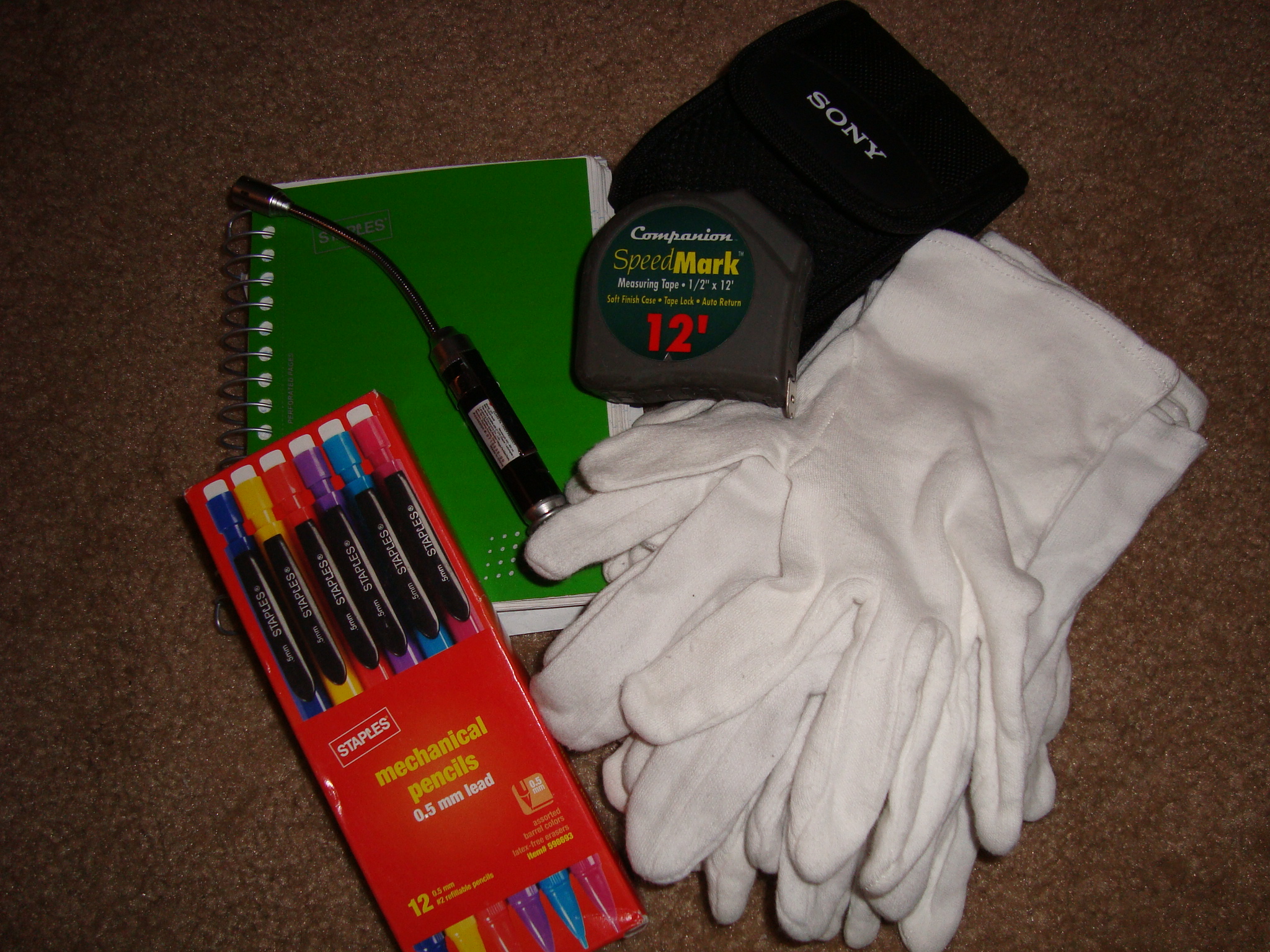by Allyson Lazar

Some of the tools that may be used by a contract registrar: cotton gloves, camera, notebook, pencils, flashlight and tape measure.
These days with so many layoffs, there are a lot of people running around calling themselves freelancers, consultants or contract registrars. But is getting laid off enough of a reason to "hang your shingle" out there and go independent? How do you know if you're really ready to cut it in the world of museum consulting and contract work?
The "Survival Strategies for Consultants" led by museum collections specialist Ted Greenberg answered just those questions and more! The panel consisted of Mo Shannon, the former registrar at the Museum of Contemporary Art in LA who has now been independent and caring for the collections of private collectors for 15 years; Alice Parman, an interpretive planner from Oregon who has worked in the past both in museums and exhibit development/design firms; and Gail Anderson, who went independent as a management and strategic planning consultant after 25 years in the field.
Though they each have markedly different backgrounds and areas of expertise, each one of these panelists is doing well right now, despite the downturn in the economy. Perhaps that's because each one of them made the conscious decision to go independent, rather than being forced into that position, and each one has taken the time to be strategic in their approach to working on their own. They all seem to love the flexibility that freelancing affords, but they caution that you have to know yourself and if being your own boss is right for you: working, managing yourself, looking ahead to new clients and projects, tracking your time (often in 15-minute increments) and tracking receipts. You have to be aware of and prepared for the additional costs associated with freelancing: health care, insurance, a higher tax rate, office expenses and marketing.
Marketing is critical--both informally through word of mouth and building connections with vendors as well as museums, and formally, primarily through websites these days. It's also important to very carefully and strategically determine your particular skill set and area of specialization and your geographic focus--are you willing to travel? if so, how far?
Naturally a good portion of the discussion was devoted to the ever-important topic of how to set billing rates and fees, and although this is critical, I found the overall discussion even more useful. What I took away from the session was that, done right, independent consulting can be a great way to serve the museum field in a way that is both personally and financially rewarding, but you really have to examine yourself first to determine if it is the right step and if so, you must be strategic about how you approach your business.








Comments
Thanks Allyson, for writing a short synopsis of what was presented. The three panelists are indeed an inspiration for those in the business of helping the museum profession. Providing their expertise to either an institution or private client is indeed beneficial for the field and inspiring to those who are considering to dive into this challenging occupation. I thanked them over and over for their participation. The audience questions and response was also welcomed and added to the presentation.
Thanks for the update on this strong session, Allyson. Unfortunately I was presenting in the same time slot so I had to miss it. I agree with the presenters... you have to have a strong game plan for being a consultant and definitely have to have a lot of discipline to keep it going. And the right temperament to weather the ebb and flow of business, especially in this economy. Thanks for sharing!
Add new comment